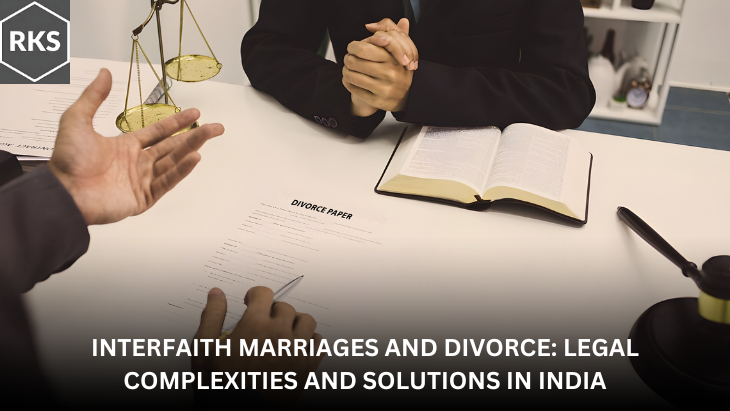
In India, marriage isn’t just a social institution; it’s more than that. Weddings don’t just mean the union of two individuals, they also mean the union of two families, and this is why interfaith marriages are still a bit complicated in India. Especially in cases where the interfaith couple files for divorce, legal complexities arise. Are you an interfaith couple trying for a divorce? Confused about the legal intricacies surrounding interfaith marriages and divorces in India? Well, here’s some information from the best divorce lawyers in Mumbai.
The Legal Framework Governing Interfaith Marriages
In India, the personal laws addressing marriage and divorce are predominantly based on religious scriptures and customs. While Hindu, Muslim, Christian, and Parsi communities have their distinct laws regulating family matters, the Special Marriage Act of 1954 provides a secular alternative for interfaith couples to solemnize their marriage and govern divorce proceedings. However, challenges can still arise, and they might need the aid of the best advocates in Mumbai.
Legal Challenges in Interfaith Marriage Divorces
One of the biggest challenges faced by interfaith couples seeking divorce is the conflict of personal laws. Every religious community has its own set of rules governing marriage, divorce, alimony, and child custody. However, when partners from different religious backgrounds decide to part ways, determining which laws apply to their case can be complex and contentious. In addition, societal as well as familial pressures also exacerbate the situation, and make it difficult for couples to resolve their disputes amicably.
Interfaith divorces involve issues such as conflicting legal provisions jurisdictional conflicts, and differing interpretations of religious laws. For instance, a Muslim woman married to a Hindu man might find it extremely cumbersome to secure a divorce under Islamic law, if her husband refuses to consent. Similarly, divorces with matters associated with property division and inheritance also become intricate due to variations in personal laws.
How can a Lawyer Help?
In interfaith divorce cases, seeking appropriate legal counsel as soon as possible is indispensable. A lawyer can provide expert advice on the applicable laws and procedures, hence helping the couple to understand their legal options and implications. In addition, they can also assist in drafting and filing necessary legal documents accurately and efficiently and represent their clients in negotiations, court proceedings, mediations, and more.
Conclusion
Divorces are never easy, and especially if it’s a divorce concerning an interfaith marriage, it’s all the way more daunting. Imagine fighting in court to get separated when you already fought a battle in front of your families to live the rest of your lives together! Well, that’s what interfaith divorces feel like. If you are filing for a divorce, work with the best divorce lawyers in Mumbai who can make the legalities easier for you, and handle everything associated with your divorce from alimony and child support to custody and separation of assets. Need more information, or looking for the best advocates in Mumbai to schedule a consultation? Well, feel free to connect with the legal consultants at RKS Associate today!